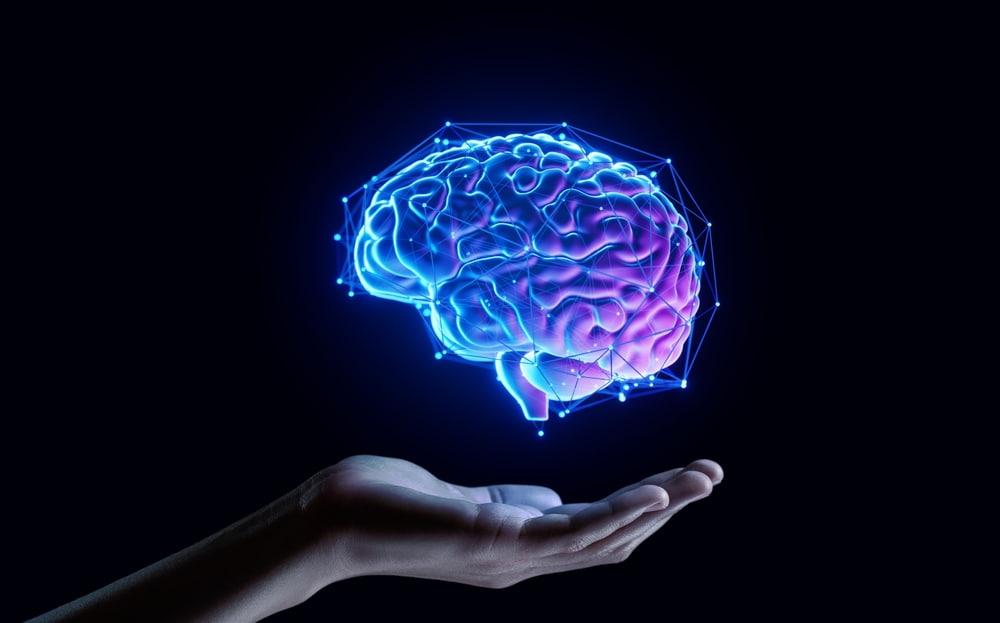Huntington’s Disease Explained: What Every Health-Conscious Person Needs to Know
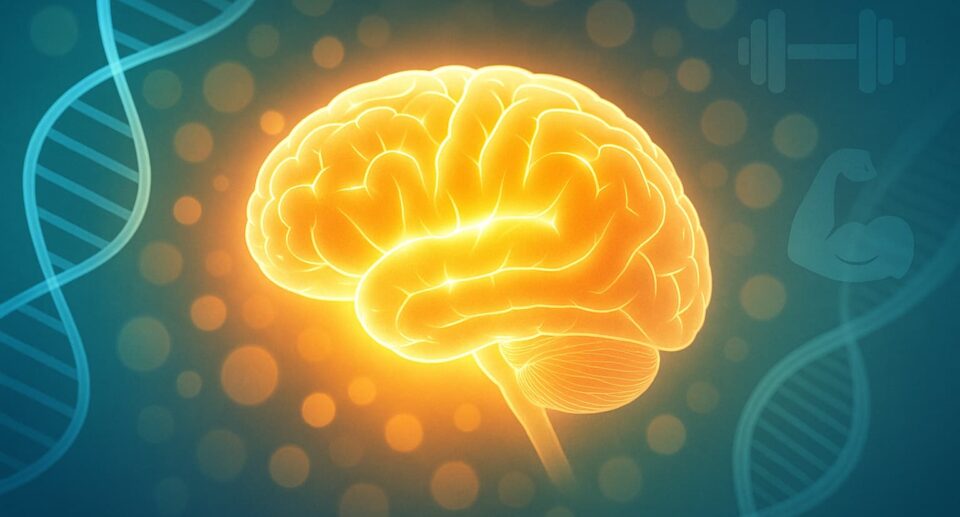

Why Health-Conscious People Should Care
Huntington’s Disease (HD) is a rare but serious genetic condition that gradually damages nerve cells in the brain, leading to difficulties with movement, memory, and mood. According to the National Institute of Neurological Disorders and Stroke (NINDS), symptoms usually begin between the ages of 30 and 50, and the condition is caused by a defect in a single gene that gets passed down through families (NINDS, Huntington’s Disease). At first glance, HD may seem like a disorder that only concerns those with a direct family history, but its significance goes much further. For anyone committed to a healthy lifestyle, understanding HD matters because it emphasizes the importance of brain health in overall well-being. Just as we monitor our heart health through diet and exercise, the brain our body’s control center requires equal care and awareness. Recent advances in treatment, such as groundbreaking gene therapy trials reported in Nature (Nature, 2025), offer hope for slowing the disease’s progression, reminding us how powerful the connection is between medical science and personal wellness. By learning about conditions like Huntington’s, health-conscious individuals not only build empathy for those affected but also strengthen their own commitment to protecting cognitive health through balanced living, proactive check-ups, and staying informed.
What is Huntington’s Disease?
Huntington’s Disease (HD) is a rare, inherited brain disorder that slowly breaks down nerve cells in specific regions of the brain. This gradual degeneration affects a person’s ability to move, think, and manage emotions over time. The condition is caused by a mutation in a single gene called HTT (huntingtin), which produces an abnormal form of a protein that damages brain cells. Because the disorder is autosomal dominant, a child only needs to inherit one copy of the defective gene from either parent to eventually develop the disease. According to the Mayo Clinic (Mayo Clinic – Huntington’s disease), symptoms often appear in mid-adulthood, typically between the ages of 30 and 50, though early-onset cases can occur. Once symptoms begin, the disease usually progresses over 10 to 25 years, affecting movement (such as involuntary jerking or muscle problems), cognitive skills (like memory and judgment), and mental health (including depression or irritability).
The importance of understanding HD goes beyond those directly at risk. It highlights how a single genetic change can profoundly shape brain health, reminding us that genetics, lifestyle, and medical innovation are interconnected. The National Institute of Neurological Disorders and Stroke (NINDS) emphasizes that while there is currently no cure, advances in research are steadily offering new hope for treatment and management (NINDS – Huntington’s Disease). For health-conscious individuals, HD serves as a powerful example of why caring for brain wellness is just as essential as caring for physical fitness.
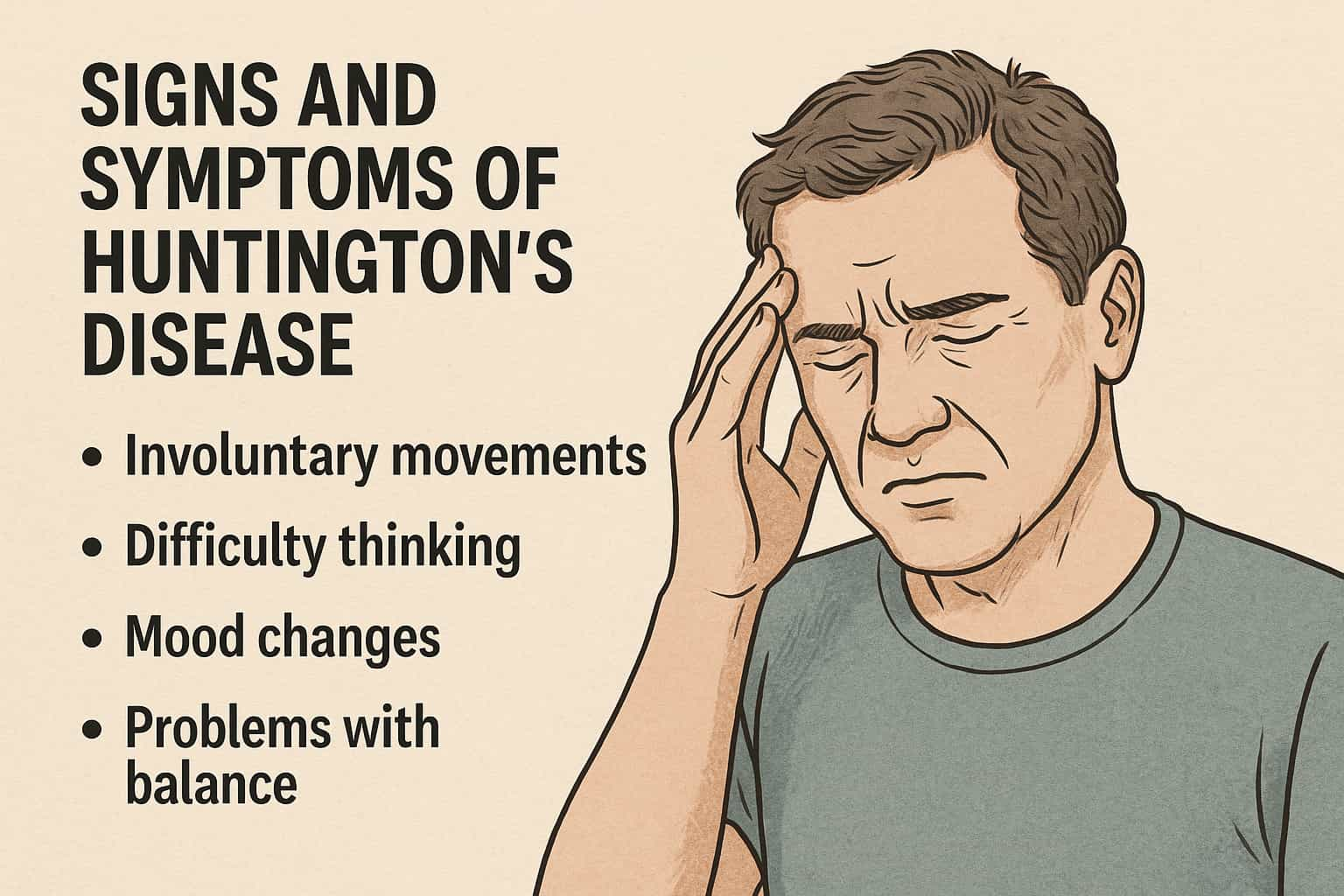

Signs and Symptoms
The signs and symptoms of Huntington’s Disease (HD) usually develop gradually and become more noticeable over time. One of the earliest indicators is often subtle changes in movement, such as involuntary jerking motions or difficulty with coordination. As the disease progresses, people may experience muscle stiffness, trouble with balance, or slowed eye movements, making everyday tasks increasingly challenging. Cognitive abilities are also affected, with problems in concentration, decision-making, and memory becoming more apparent. Emotional and behavioral changes are common too—many patients show signs of depression, irritability, anxiety, or sudden mood swings. Experts at institutions like the Mayo Clinic and the Cleveland Clinic note that these symptoms typically appear in mid-adulthood, although they can sometimes emerge earlier or later depending on the individual. What makes HD particularly challenging is that physical, mental, and emotional symptoms often progress together, placing a significant burden not just on the patient but also on their family and caregivers.
Why It’s in the News Now
Huntington’s Disease has recently drawn global attention because of a groundbreaking development in medical research. For the first time, a gene therapy has shown the potential to significantly slow the progression of the disease. According to researchers at University College London (UCL) and reports published in leading journals like Nature, this one-time treatment reduced the rate of Huntington’s symptoms by as much as 75% in early trials. This marks a historic moment, since up until now, no therapy had been able to change the course of the disease treatments only managed the symptoms. News outlets such as The Guardian and BBC Health highlighted this breakthrough, emphasizing that while the therapy is still in the trial stage, it represents a major leap forward in neuroscience and genetic medicine. For health-conscious readers, this news is important not only because it offers hope to patients and families directly affected by Huntington’s, but also because it demonstrates how rapidly advancing science can reshape our understanding of brain health and open the door to future treatments for other neurological conditions.
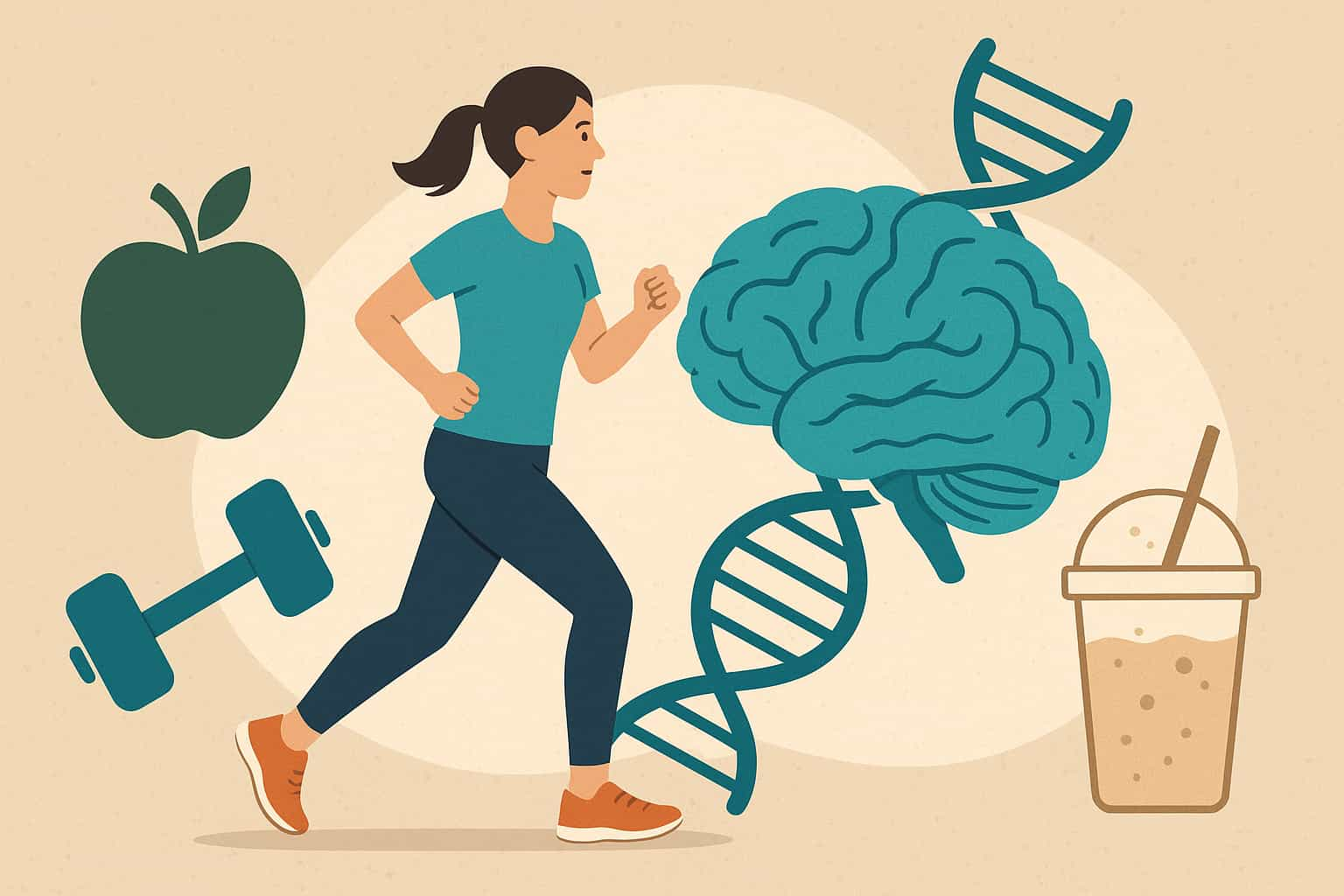

Healthy Lifestyle & Brain Wellness Connection
While Huntington’s Disease is a genetic condition, research from institutions like Harvard Medical School and the Alzheimer’s Association shows that lifestyle choices can play a powerful role in supporting brain health and slowing cognitive decline in general. A balanced routine that includes regular physical activity, nutrient-rich foods, quality sleep, and effective stress management not only strengthens the body but also nurtures the mind. For example, consistent exercise improves blood flow to the brain, helping protect neurons and support mood stability. Similarly, a diet rich in leafy greens, whole grains, lean protein, and omega-3 fatty acids has been linked to better memory and sharper thinking.
At CoreWellFit, we’ve often emphasized that true wellness means caring for both body and mind. In fact, you can explore practical strategies in our guide on best home workouts for arm toning without equipment, which shows how even simple bodyweight exercises contribute not only to strength but also to long-term brain health by reducing stress and boosting circulation. Mindfulness practices such as meditation or deep breathing further help regulate stress hormones, which are known to negatively impact cognitive function over time.
For health-conscious readers, the key takeaway is this: while we cannot change our genetic makeup, we can influence how resilient our brains remain through daily choices. By combining awareness of conditions like Huntington’s with a proactive approach to lifestyle and wellness, we create a foundation for a healthier mind and body well into the future.
Current Treatment Options & Hope for the Future
At present, there is no cure for Huntington’s Disease, but doctors and researchers are continually working to find better ways to manage its effects. Current treatments mainly focus on easing symptoms and improving quality of life. According to the Mayo Clinic and the National Institute of Neurological Disorders and Stroke (NINDS), medications such as tetrabenazine may help control involuntary movements, while antipsychotic or antidepressant drugs are often prescribed to manage mood changes, anxiety, or depression. In addition to medication, physical therapy, occupational therapy, and speech therapy play an essential role in helping patients maintain independence for as long as possible. These therapies support movement, communication, and daily functioning, making the progression of the disease easier to cope with for both patients and their families.
What makes the future more hopeful is the recent progress in gene therapy. As highlighted by researchers at University College London (UCL) and reported in Nature, a pioneering one-time gene therapy has successfully slowed the progression of Huntington’s symptoms by up to 75% in initial trials. This breakthrough has been widely described by media outlets like BBC Health and The Guardian as a turning point in the fight against neurodegenerative diseases. Although this treatment is still in the experimental stage, it offers tremendous hope that the trajectory of Huntington’s Disease could be changed for the first time in history.
For health-conscious readers, the message is powerful: science is advancing rapidly, and by staying informed and supporting brain wellness through lifestyle, we not only protect our own cognitive health but also remain part of a future where devastating conditions like Huntington’s may one day be managed or even cured.
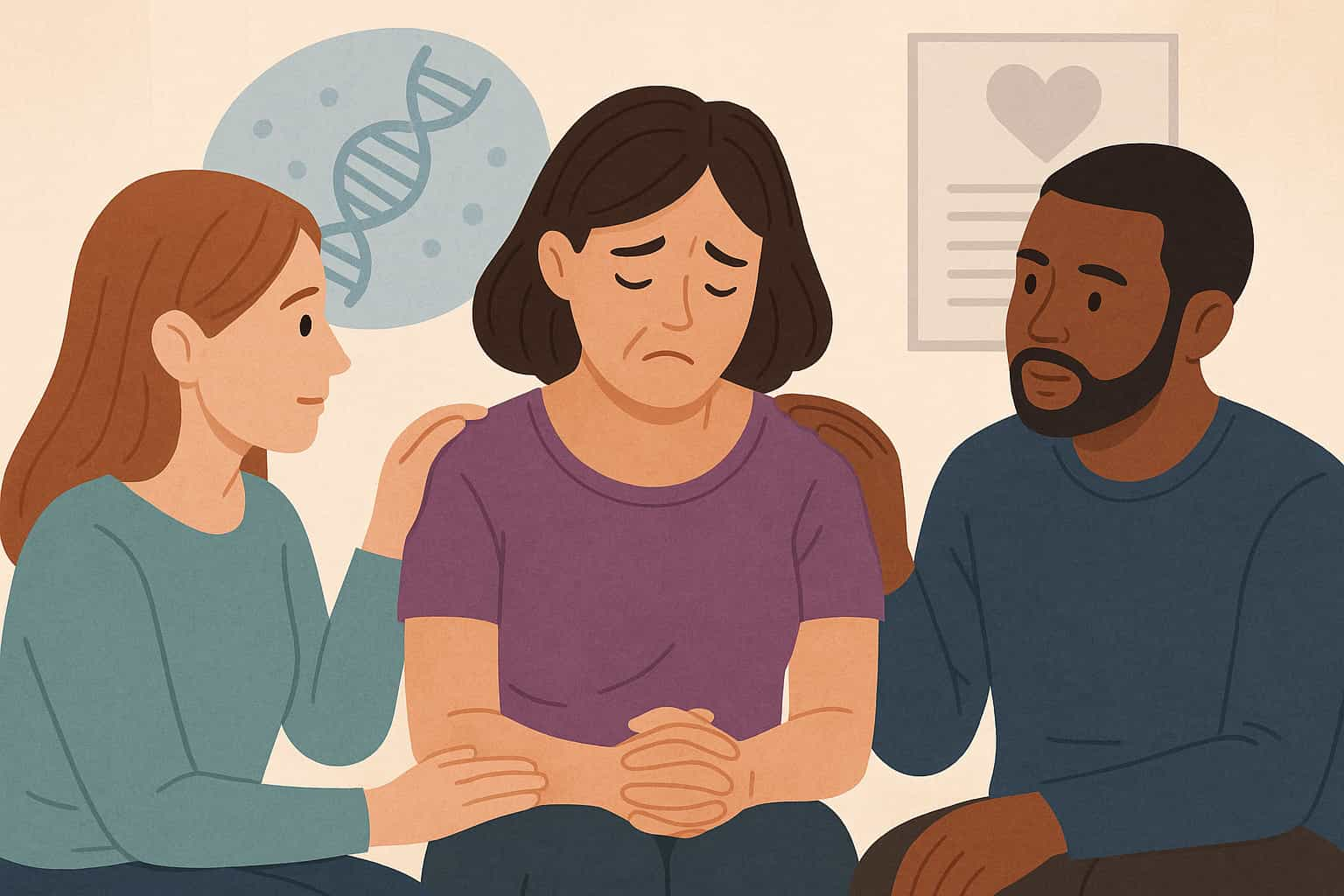

Living with Huntington’s: Support & Resources
Living with Huntington’s Disease is never just about the person diagnosed it deeply affects families, caregivers, and entire communities. The challenges go beyond medical symptoms, touching emotional health, financial stability, and day-to-day routines. That’s why support networks are so vital. Organizations such as the Huntington’s Disease Society of America (HDSA) (HDSA Support Resources) and the European Huntington Association provide education, counseling, and community groups that help patients and families navigate the disease together. These resources not only connect people to professional care but also create a sense of belonging, where individuals can share experiences, coping strategies, and encouragement.
Mental health support is equally important. Psychologists and counselors trained in neurological conditions can guide families through difficult transitions and help manage stress, grief, and uncertainty. Clinics like the Cleveland Clinic Neurological Institute emphasize multidisciplinary care bringing together neurologists, therapists, dietitians, and social workers so that no aspect of the patient’s life goes unsupported. Caregivers, often family members, benefit greatly from such programs, as they provide tools to reduce burnout and maintain their own health while caring for a loved one.
For health-conscious readers, understanding these resources reinforces a key truth: health is not only about individual habits but also about building supportive environments. By seeking out reliable networks and professional guidance, families living with Huntington’s Disease can find strength, resilience, and hope even in the face of a difficult diagnosis.
Takeaway for Health-Conscious Readers
Huntington’s Disease is a reminder that brain health is just as important as physical fitness. While genetics play a central role in this condition, lifestyle choices such as exercise, nutrition, stress management, and sleep have a powerful influence on overall cognitive wellness. Staying informed about conditions like HD not only helps us better understand the challenges faced by patients and families but also inspires us to take proactive steps in caring for our own mental and physical health. Advances in gene therapy and medical research give hope for the future, but the foundation of wellness remains in the daily choices we make.
For those who prioritize a healthy lifestyle, the key message is simple: protect your brain as you protect your body, stay connected to reliable health resources, and never underestimate the value of awareness.
👉 Continue exploring health, fitness, and wellness insights on our CoreWellFit Blog.
Disclaimer: The information shared here is intended for general wellness awareness and educational purposes. It should not be taken as professional medical advice. For diagnosis, treatment, or specific medical guidance, always consult a qualified healthcare provider.








